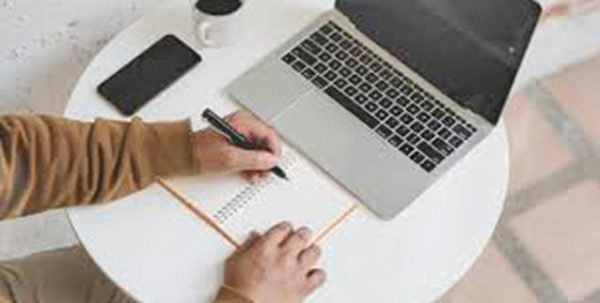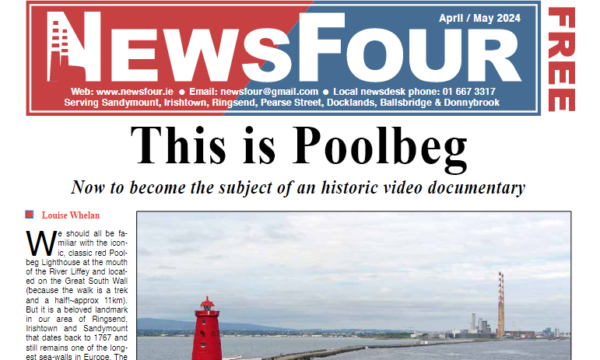
By Geneva Pattison
“Workers in the arts sector deserve to enjoy the same protections as those in other sectors.”
In February of this year, the Wake up Irish Poetry website was launched. The site contains a public, open letter to the Department of Culture, Heritage and Gaeltacht and to the Arts Council, calling for “acceptable standards of ethics and governance within the Irish arts sector.”
The initiative was established to combat the lack of redress channels within certain areas of the Irish creative sector. Wake Up Irish Poetry is calling for transparency and accountability from all relevant practitioners within the Irish arts. This includes funding bodies, businesses and individuals that may have been involved in inequality, undealt with complaints or cases of alleged harassment and bullying.
The open letter was devised by a group of “arts practitioners, publishers and academics” calling for fair and progressive change. Currently, the number of signatures it supports stands at over 300.
Wake up Irish Poetry is seeking to draw attention to the organisation MEAS (Measuring Equality in the Arts Sector) and their ongoing work to compile official reports on equality within the Irish arts sector. Established by Dr. Kenneth Keating and Dr. Ailbhe McDaid, MEAS have already published the investigative enquiries “Gender in Aosdána”, “Gender in Poetry Publishing in Ireland” and “Poetry Reviews in the Irish Times”.
NewsFour got in touch with Kathy of Wake Up Irish Poetry for further information on the movement.
Q: As mentioned on your website, the first aspect of change within the sector that you are calling for is “an Enquiry” into past instances of harassment, discrimination and un-addressed complaints. What reprimanding actions are you hoping will take place after the inquest stage?
It’s less about reprimand for us than it is about making changes that will ensure that all artists and workers in the arts sector are safe at work in the future. As we say in the open letter, removal of individuals does not solve a systemic problem. What is needed to make real change is engagement with those who have been affected, collaboration with practitioners to draw up enforceable codes of practice, and incentivising adherence to these – as well as clear routes, to independent regulators when necessary, for those with complaints. The research organisation Measuring Equality in the Arts Sector (MEAS) is embarking on a project to collect accounts of mistreatment, sexual harassment and bullying from practitioners too, which I hope will highlight to funding bodies and overseeing institutions how serious and endemic this issue is. We are sadly still awaiting a response from Minister Josepha Madigan to our repeated requests for a meeting, at which we wish to gain her support for a literature version of the ‘Speak Up – Call It Out’ initiative which has been so welcome and successful in the theatre world.
Q: In your public open letter, there is a huge focus on improving diversity within the arts. In what ways can improvements be made across the board regarding inclusivity?
There are very simple ways to improve diversity and fair representation in the arts, but a serious stumbling block which has reared its head in the press recently has been the idea of an objectively measurable ‘merit’ by which we can evaluate all artistic production. OF COURSE your value system is based on what is familiar to you, your culture, your society. To deny that when faced with evidence of extreme under-representation of huge swathes of artists, as has been done recently by established commentators who should know better, is facile and lazy. We all have to do better to explore the work of under-represented artists and to ask ourselves why certain kinds of art and writing haven’t made it into our homes, why certain kinds of people aren’t sitting around the table when the decisions are made, why we think one piece of art is objectively ‘better’ than another. There are vicious cycles at work in Ireland whereby it can be far more difficult for, for example, a migrant writer to navigate the coded world of literary publication, and therefore to have the kind of publication profile that would get them invited to read at festivals. We need to acknowledge and address these. It is no longer good enough (and never was) not to ask, when planning a publication or literary event, where the writers of colour, the writers with disabilities, the LGBTQIA+ writers, the women writers are in your list. It’s no longer good enough to accept reading or publication invitations without asking what efforts have been made by the organiser to ensure fair representation.
Q: In 2019 the Arts Council released their Equality, Human Rights and Diversity Policy and Strategy (EHRD). What are your views on the EHRD Policy and Strategy? Does it encompass and propose enough positive changes in your opinion?
I think the EHRD document is a great step forward, and our recent meeting with the Arts Council was very positive. It will be interesting to see how the goals and aims of the strategy are followed up on with regard to individual organisations and event organisers. It’s lamentable in this country in general that we are very good at publishing aspirational documents which are only read and engaged with by those who were already more or less on the same page, and I really hope that efforts are made to properly incentivise organisations to adhere to the policy in practice.
Q: Would you like to add any further comments?
It’s really important to keep this conversation alive so that we can continue to fight for real change, so please sign and share our open letter at wakeupirishpoetry.ie and follow the Twitter hashtag #WakeUpIrishPoetry for further discussion and news of upcoming events.
As mentioned in this interview, Wake Up Irish Poetry have reached out to Minister Josepha Madigan on several occasions and are awaiting a response. NewsFour will follow the situation and report on any further developments from Wake Up Irish Poetry.
To read the Wake Up Irish Poetry open letter or to sign it, please follow the link below.
http://www.wakeupirishpoetry.ie/#
To read the EHRD policy from the Arts Council, visit the link below.
http://www.artscouncil.ie/equality-human-rights-diversity/
Visit the MEAS website below to read their equality reports.http://measorg.com/



